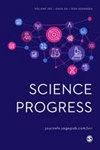数字金融与可持续发展:来自发展中国家的证据
IF 2.6
4区 综合性期刊
Q2 MULTIDISCIPLINARY SCIENCES
引用次数: 0
摘要
本文研究了 2010 年至 2019 年数字金融在 52 个发展中经济体中促进环境可持续性的作用。方法本文是一项定量研究,采用了 IV-GMM(工具变量广义矩方法)方法来解决任何潜在的内生性问题。此外,为确保结果的稳健性,本文还采用了不同的金融发展衡量指标。结果本研究的估计结果显示,数字金融与二氧化碳排放之间存在倒 U 型关系。这表明,数字金融的有利影响可能需要一段时间才能实现。此外,本研究还记录了环境库兹涅茨曲线的存在,以及可再生能源、贸易开放度、金融发展、城市化和人口对二氧化碳排放的显著影响。因此,除数字金融外,各国还应同时采取其他措施(使用可再生能源、数字金融与金融发展相结合)。本文章由计算机程序翻译,如有差异,请以英文原文为准。
Digital finance and sustainable development: Evidence from developing nations
ObjectivesThis paper investigates the role of digital finance in promoting environmental sustainability within a group of 52 developing economies from 2010 to 2019. Specifically, it examines whether digital finance effectively contributes reducing CO2 emissions in these nations.MethodsThis paper is a quantitative study which employs the IV-GMM (instrumental variable generalized methods of moment) approach that tackles any potential endogeneity. Furthermore, to ensure robustness of results, this paper also utilizes different measures of financial development.ResultsEstimation results from this study reveal the presence of inverted U-shaped relationship between digital finance and CO2 emissions. This suggests that the beneficial effects of digital finance may take time to materialize. Additionally, this research also records the presence of the Environmental Kuznets Curve and a significant impact of renewable energy, trade openness, financial development, urbanization, and population on CO2 emissions.ConclusionsIt can be concluded that it may take time for digital finance to become beneficial to the environment. Therefore, in addition to digital finance, countries should also adopt other measures simultaneously (use of renewable energy, combination between digital finance and financial development).
求助全文
通过发布文献求助,成功后即可免费获取论文全文。
去求助
来源期刊

Science Progress
Multidisciplinary-Multidisciplinary
CiteScore
3.80
自引率
0.00%
发文量
119
期刊介绍:
Science Progress has for over 100 years been a highly regarded review publication in science, technology and medicine. Its objective is to excite the readers'' interest in areas with which they may not be fully familiar but which could facilitate their interest, or even activity, in a cognate field.
 求助内容:
求助内容: 应助结果提醒方式:
应助结果提醒方式:


